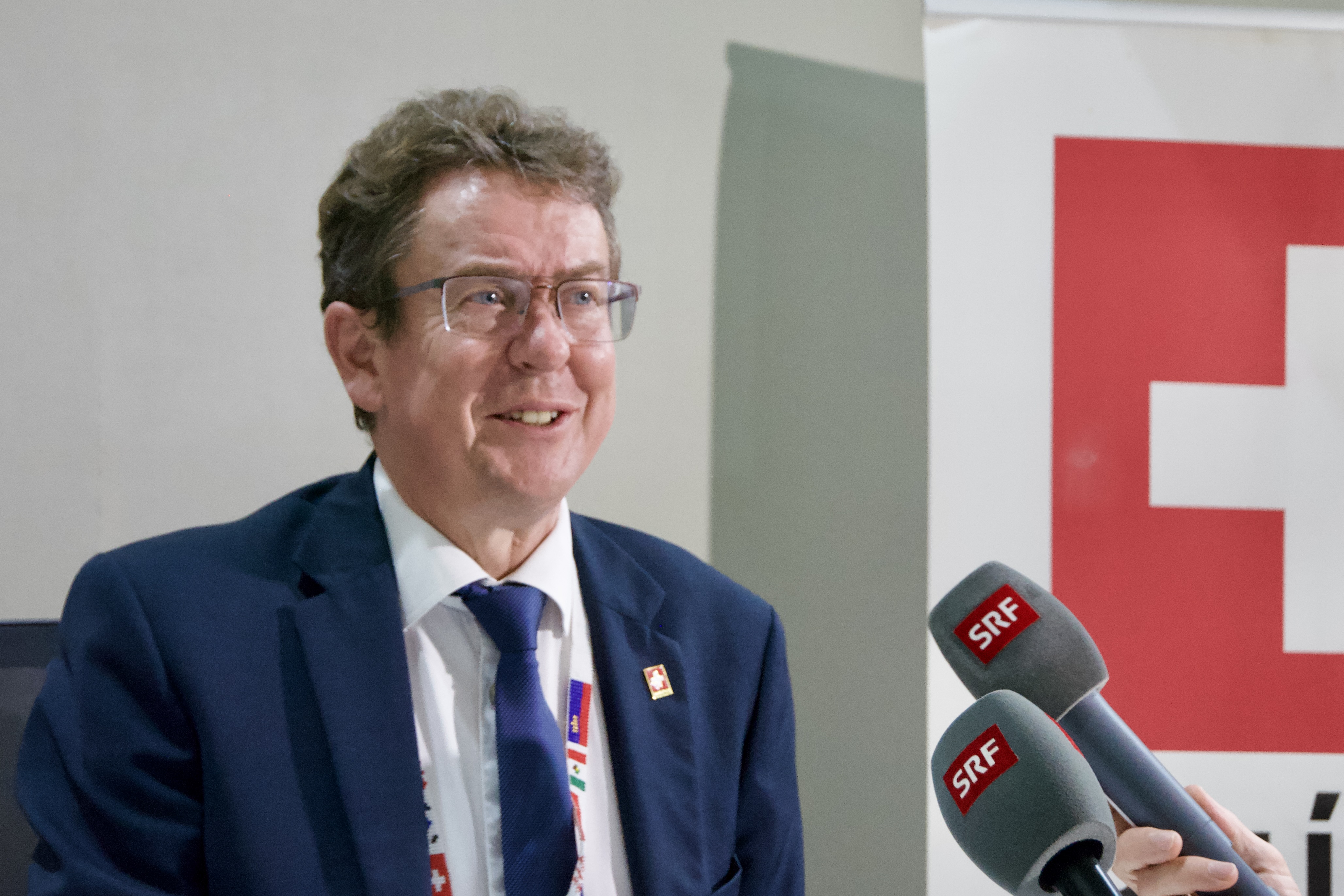
Swiss justice minister discusses plight of Syrian migrants in Brussels

Swiss Justice Minister Beat Jans met his European counterparts in Brussels on Thursday to discuss the situation of Syrian asylum-seekers in Europe. Jans called for coordinated action by European states.
+Get the most important news from Switzerland in your inbox
Jans told reporters in Brussels that it was time to help Syrians rebuild their country. “We must not disappoint the great hope that is there now. European countries must try to establish democracy there,” he declared.
It is also about preventing other people from leaving Syria and possibly seeking protection in Europe, Jans acknowledged.
The State Secretariat for Migration (SEM) announced at the beginning of the week that asylum procedures underway in Switzerland for people from Syria had been suspended. This concerns around 500 cases in Switzerland. In Europe, 15 countries have taken a similar decision, Jans noted.
+ About 500 Syrians affected by Swiss asylum freeze
Around 4,000 Syrians are in Switzerland hold temporary residence status.
“If a return is reasonably possible, we will lift this status and discuss the matter with these people,” said the Swiss minister, adding that Switzerland would support Syrians who wished to return voluntarily.

More
Fall of Assad: Switzerland calls for reconciliation in Syria
Enlargement of Schengen
On a separate issue, Romania and Bulgaria will become full members of Europe’s Schengen free-travel area from next month, swelling the number of nations to 29, the EU said on Thursday.
Jans said this change would not bring any major changes for Switzerland. According to the Federal Council’s estimate, this will have no influence on immigration or migration. For the moment, migratory flows are not passing through Bulgaria or Romania on their way to Central Europe.
Translated from German by DeepL/sb
This news story has been written and carefully fact-checked by an external editorial team. At SWI swissinfo.ch we select the most relevant news for an international audience and use automatic translation tools such as DeepL to translate it into English. Providing you with automatically translated news gives us the time to write more in-depth articles.
If you want to know more about how we work, have a look here, if you want to learn more about how we use technology, click here, and if you have feedback on this news story please write to english@swissinfo.ch.

In compliance with the JTI standards
More: SWI swissinfo.ch certified by the Journalism Trust Initiative



























You can find an overview of ongoing debates with our journalists here . Please join us!
If you want to start a conversation about a topic raised in this article or want to report factual errors, email us at english@swissinfo.ch.